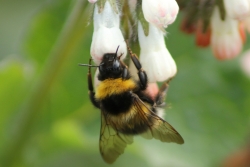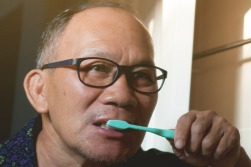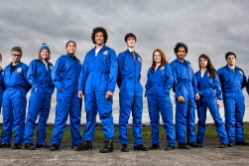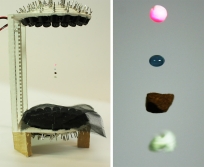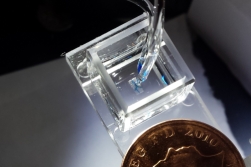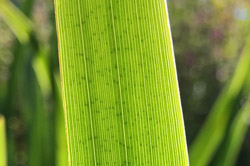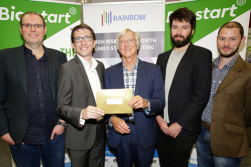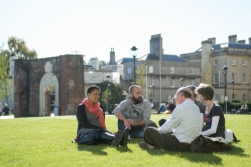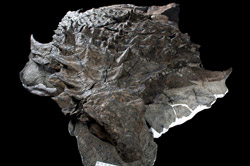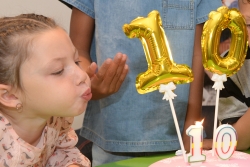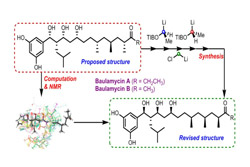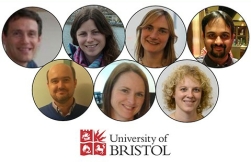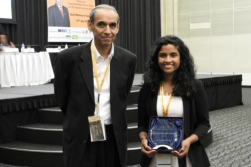Food for thought as festival brings research to life
Members of the public are invited to experience community research first-hand at a special festival taking place on 14 September.
Members of the public are invited to experience community research first-hand at a special festival taking place on 14 September.
University of Bristol scientists have found that the delivery of a group of proteins involved in the information flow between the brain’s nerve cells to the synapse is much more sophisticated than previously suspected. The findings, published in Cell Reports, will help the development of therapies for conditions such as epilepsy and autism whereby neuronal communication circuits malfunction.
A group of international researchers have returned from a highly successful expedition to the Labrador Sea and coastal Greenland, led by scientists at the University of Bristol.
A new study led by academics at the Bristol Veterinary School has reviewed the literature on the use of antimicrobials (AM) in livestock practice together with the views of stakeholders. The study found that although there are some barriers to change, there is a clear awareness of the issue among the livestock sectors and a willingness to modify AM use.
A decades-old mystery of why a naturally-occurring organic crystal fluoresces blue under ultra-violet light, yet when grown under laboratory conditions fluoresces with an intense green colour, has been solved by scientists from the University of Bristol.
A new study has shed light on the swimming style of a prehistoric sea creature by creating a robot to mimic its movements.
A second phase of consultation around the University of Bristol’s plans for its new £300 million campus next to Bristol Temple Meads will be held in September.
Bees, butterflies, moths, bats and birds will take centre stage at the University of Bristol's Botanic Garden this weekend [2 and 3 September] for its annual Bee and Pollination Festival. Visitors to the Garden will have the opportunity to find out how industrious and vital these workers are and how flowers use caffeine, forms of traffic control and floral imposters to attract pollinators.
Extending the operating hours of the liaison psychiatry service at the Bristol Royal Infirmary’s (BRI) Emergency Department has led to improved care and outcomes for patients who have self-harmed, NIHR-funded research has found. Self-harm is a strong risk indicator for suicide, so getting psychiatric support for these patients has the potential to save lives.
The University of Bristol has appointed its first Special Advisor on Industrial Strategy.
New research commissioned by British Red Cross shows that over a third of people [34.1 per cent] who attend accident and emergency (A&E) departments were seeking help because they are 'worried and didn't know what to do'.
Former Senior Lecturer in Education and Modern Languages Elisabeth Lazarus has passed away. Her colleague Professor Ros Sutherland offers a remembrance.
Oral steroids should not be used for treating acute lower respiratory tract infection (or ‘chest infections’) in adults who don’t have asthma or other chronic lung disease, as they do not reduce the duration or severity of symptoms, according to a new study published in the journal JAMA [22 August].
The earliest introduction of domestic chickens and black rats from Asia to the east coast of Africa came via maritime routes between the 7th and 8th centuries AD.
Scientists at the University of Bristol are investigating how bacteria in our mouth can cause a heart problem, called infective endocarditis. Although uncommon, infective endocarditis is a serious condition that can often be fatal.
A Bristol PhD student has made the cut for a brand-new TV programme to find out who has what it takes to be an astronaut. The programme, called Astronauts Do You Have What It Takes? will air on BBC Two on Sunday [20th August] at 9pm.
Dr Christopher Sherwin, Senior Research Fellow at Bristol Veterinary School before his retirement in 2012, died on 18 July. His colleague Mike Mendl offers a tribute.
While most British children are likely to have heard of Fantastic Mr. Fox, very few adults, let alone children, may have heard of Reynard, the Dutch vulpine trickster who inspired Roald Dahl’s much-loved character.
The world-famous Play Me, I’m Yours street piano project officially gets underway in Bristol tomorrow [17 August] as 18 eye-catching instruments are rolled out across the city.
Levitation techniques are no longer confined to the laboratory thanks to University of Bristol engineers who have developed an easier way for suspending matter in mid-air by developing a 3D-printed acoustic levitator. This new technique, published in Review of Scientific Instruments, could be applied to a range of applications, including blood tests.
A team from the University of Bristol’s School of Cellular and Molecular Medicine, together with scientists at the University of Oxford, has developed a new method to 3D-print stem cells to form complex living 3D structures.
The University of Bristol has been ranked 8th in the UK and 61st in the world, according to the Academic Ranking of World Universities (ARWU) published today.
A new study, led by the University of Bristol, has shed new light on the origin, timing and habitat in which the chloroplast first evolved.
Famously described as 'the deepest problem in solid state physics' by Nobel Laureate, Philip Andersen, the glass transition, by which a liquid transforms into a solid without freezing, is shedding its mystique.
PreScribed (a life written for me) opens in Edinburgh this week and explores the alarming statistic that one in five practising GPs suffer from chronic stress and anxiety.
Talking about the highs, and understanding the lows, of being a dad is the theme of a new project led by an inter-disciplinary team of academics from the University of Bristol.
Global policies on access to highly hazardous pesticides – commonly ingested in acts of self-poisoning and suicide in rural Asia – should focus on national bans, rather than safe storage, according to two studies involving University of Bristol academics in The Lancet and The Lancet Global Health journals.
BrisSynBio start-up, Zentraxa has been named 'Best South-West England SynBio Start-up' at the 2017 Bio-start Awards, winning three months of free laboratory space at Bristol-based innovation centre, Unit DX.
A team of archaeologists from the University of Bristol and Zayed University (Abu Dhabi) have uncovered the foundations of two seventeenth century Portuguese churches on the East African island of Zanzibar.
Colouration is a vitally important biological trait because it is involved in individual survival and with reproduction through camouflage, warning colouration, mate choice, social signalling, thwarting parasitism, as well as thermoregulation.
A call for more menopause-friendly workplaces is made in a new Government report prepared by a team from the Universities of Bristol and Leicester.
The University of Bristol has achieved some significant successes in the 2017 National Student Survey (NSS), scoring highly in many subject areas.
A multidisciplinary team from the Bristol BioDesign Institute has come together to study the self-assembly of protein building into protein cages, leading to new research which has potential applications in nanotechnology and synthetic biology.
A new exhibition celebrating the people and projects which make up Bristol’s rich tapestry of learning is coming to Hamilton House.
The latest driverless vehicle technology will be on show for the public to experience for free at a science festival in Bristol this weekend.
Detailed analysis of the fossilised skin of a newly discovered species of dinosaur has revealed that despite being the size of a tank and heavily protected with armour, it was still hunted by savage predators.
For over 25 years, Children of the 90s at the University of Bristol has been charting the lives of 14,5000 people born in the early 1990s in the greater Bristol area. Thanks to the amazing commitment of these research volunteers, scientists have made important discoveries that are helping treat and prevent ill health around the world.
Chemists from the University of Bristol have revised the structure of baulamycins A and B by combining chemical synthesis, computational modelling and Nuclear Magnetic Resonance (NMR) spectroscopy.
A research team at the University of Bristol has won a prestigious international award for a technology that could help in the fight against antibiotic resistance.
Dr Duleeka Knipe, from the Bristol Medical School at the University of Bristol, has received the prestigious Andrej Marusic Award in recognition of her outstanding research into suicide prevention.

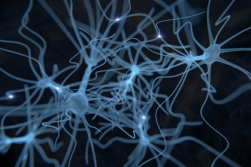
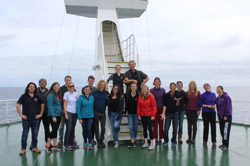
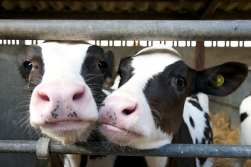
-thumb.jpg)


